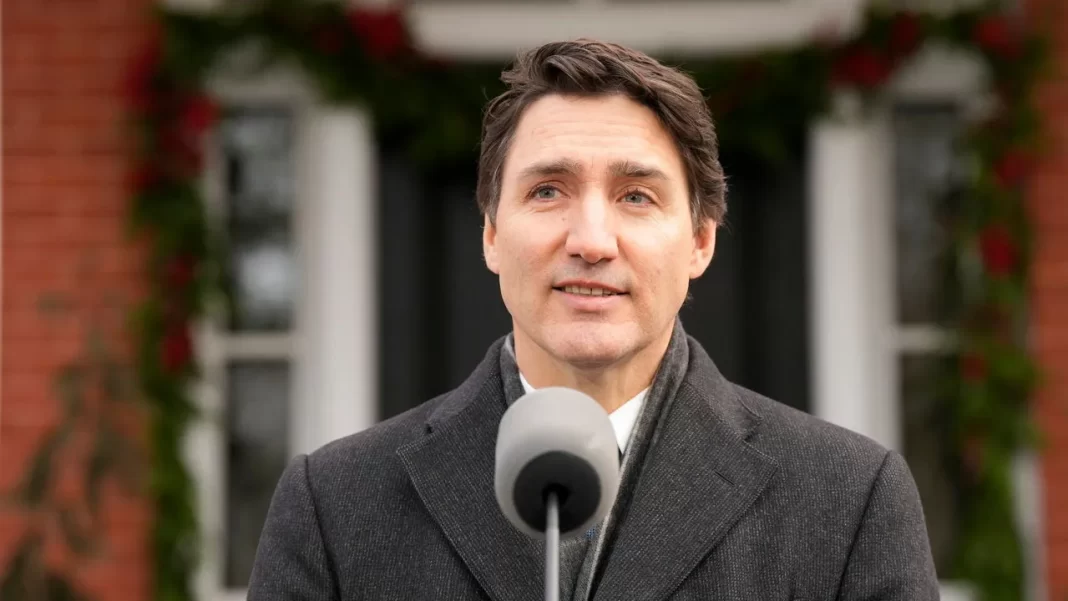Justin Trudeau Steps Down Amid Party Pressure
Canadian Prime Minister Justin Trudeau announced his decision to resign after nine years in office. Facing growing discontent within his Liberal Party, Trudeau revealed he would stay in office until a new leader is chosen. Parliament has been prorogued until March 24, marking a period of political transition for Canada.
Trudeau acknowledged the challenges of leading amidst internal party disagreements. He emphasised that his decision would allow his party to present a strong alternative in the upcoming federal elections.
Liberal Party Begins Leadership Transition
The Liberal Party has begun preparing for the selection of a new leader. Sachit Mehra, the party president, stated that a competitive, nationwide process will determine Trudeau’s successor. The new leader will face the daunting task of rebuilding the party’s reputation and preparing for elections slated to occur by October.
Trudeau’s departure follows mounting criticism from both his party and the public, including dissatisfaction with his handling of domestic and international issues.
A Legacy of Ambitious Policies
Trudeau’s nine-year tenure was marked by significant achievements. These include introducing a national carbon tax, legalising recreational cannabis, and implementing the Canada Child Benefit program.
Trudeau also championed gender equality, maintaining a 50% female cabinet throughout his leadership. Trudeau made strides in addressing issues concerning Indigenous communities. While progress was praised, much work remains to achieve meaningful reconciliation.
Scandals and Controversies Marred Leadership
Despite his achievements, Trudeau’s leadership was tarnished by a series of controversies. These included allegations of unethical dealings with a Canadian firm and photos from his past depicting him in brownface makeup. His government’s vaccine mandates and pandemic restrictions faced fierce backlash, culminating in the 2022 Freedom Convoy protests.
In recent years, economic challenges such as rising housing and food prices further eroded public confidence in Trudeau’s government. By late 2024, his approval ratings plummeted to an all-time low of 22%.
International Pressures and Domestic Strains
Trudeau’s resignation came as Canada faced external pressures, particularly from U.S. President-elect Donald Trump. Threats of tariffs on Canadian goods added strain to the economy. The abrupt resignation of Deputy Prime Minister Chrystia Freeland, who accused Trudeau of insufficient action on U.S. trade policies, amplified the challenges.
Internally, the minority government by Justin Trudeau struggled after losing the support of allied parties. Including the New Democrats and Bloc Québécois. These setbacks left the Liberal Party vulnerable as the opposition Conservatives gained a commanding lead in polls.
Public Reactions: Mixed Sentiments
Canadians expressed a range of emotions following Trudeau’s announcement. While some celebrated his departure, citing dissatisfaction with his leadership, others reflected on the positive aspects of his tenure. Trudeau’s resignation marks a turning point in Canadian politics, with many citizens anticipating significant changes in the country’s direction.
What’s Next for Canada?
As the Liberal Party prepares to select a new leader, Canada faces a critical period of transition. Analysts suggest that Trudeau’s successor must address pressing domestic issues, including inflation, housing shortages, and strained public services.
The Conservative Party, led by Pierre Poilievre, poses a formidable challenge, maintaining a significant lead in polls. Meanwhile, Bloc Québécois leader Yves-François Blanchet has called for early elections once the Liberals finalise their leadership transition.
End of the Justin Trudeau Era
The resignation by Justin Trudeau signifies the close of a transformative yet polarising chapter in Canadian history. As the country prepares for new leadership, the legacy of policies and controversies by Justin Trudeau will continue to shape political discourse. For Canada, the next steps will determine its trajectory in both domestic and international arenas.

